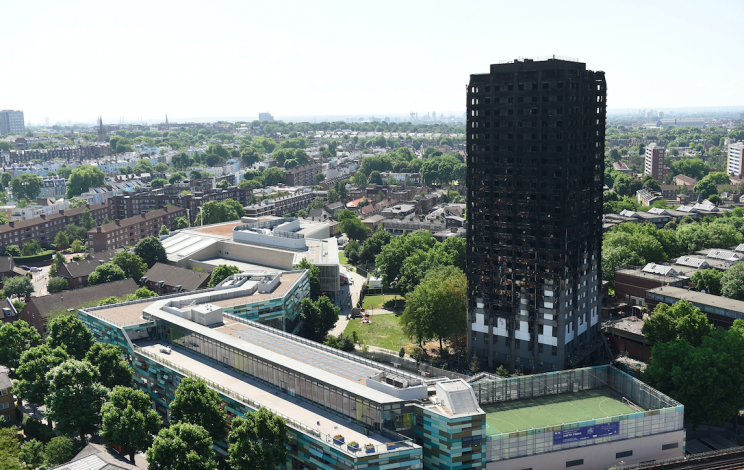Grenfell Tower fire: Only 14 families out of 158 have been given new homes

Only 14 of the 158 families evacuated from Grenfell Tower have been given new homes, officials have revealed.
Wednesday marked the three-week deadline for offering affected families a home set by prime minister Theresa May, but 19 families have yet to receive any housing offer.
But the Grenfell Response Team (GRT) said families should not be rushed into accepting temporary offers and that most of them were waiting for permanent homes.
Eleanor Kelly, the chief executive of Southwark Council and a spokeswoman for GRT, told BBC Breakfast: ‘It is about going at the pace of each individual family as to what it is that they want for themselves.
‘That’s why you can’t put a timescale on it, because it is not about numbers and its not about rushing people to meet targets.’

She said some families had received up to four offers of temporary homes in the area but had turned them down because they want a permanent home after being left ‘homeless and destitute’.
She said: ‘It isn’t just about having moved out of one home to look for another and that’s why the levels of acceptances of the temporary accommodation offered are so low. It is now at 14. It is very low because people don’t want to make two moves. They are looking for their permanent home.
MORE: Government sends in taskforce to take over parts of Kensington and Chelsea Council
MORE: Wife of Grenfell fireman says he’s ‘utterly broken’ as rescuers take up free holidays
‘Very many of the families are now on their second or third or even fourth offer.’
Residents say they have been offered properties that are either out of the borough, too expensive or on a one-year contract.
Some 139 offers had been made following 158 housing needs assessments by Wednesday.
GRT said every household that wanted to move from emergency accommodation had been made offers in Kensington and Chelsea or neighbouring boroughs, while 19 families were contacted and had either refused assistance or were abroad.

This was for a range of reasons, including some relatives who were looking after loved ones in hospital, and the response team was ‘ready to provide them with accommodation when they were ready’.
One resident reported being shown a two-bedroom property when they required three bedrooms, others had been offered places in high-rises, and another survivor was said to have been offered accommodation with the caveat that no guests could stay overnight.
GRT has said rent will be suspended for one year and thereafter will be of a ‘similar scale to a council house social rent’, while survivors should feel under no pressure to take up the first offers.
Grenfell survivor Sid-Ali Atmani, currently living in a hotel, turned down the offer of a home because it was too far from the area and the local school.
He told the BBC Radio 4 Today programme: ‘Some families… they don’t want a temporary house. Personally, I speak with a few families, they are not asking for a temporary house.
‘Can the government give them back their houses, their life back? We are not the criminals here, the crime has been happening in the building.’
Pilgrim Tucker, a campaigner working with Grenfell Tower families, told the Press Association: ‘Their concern is they are not being talked to properly, just being presented with an offer.
‘People are being texted saying, “Here is your offer, it is rent-free for a year and then it is £400 a week” – that is triple what they are paying before.’
She said the example of tripled rent had come from one specific survivor from the tower. It is not clear how many others had been offered similar deals.
Jamal Williams, a resident from a nearby block which has also been evacuated, said he had spoken to a woman who had been offered a place in Harlesden.
He expressed concerns over the clarity of tenancy agreements, adding: ‘The concern is what it will be afterwards. I think people are looking for a lifetime tenancy arrangement.’
A spokesman for the North Kensington Law Centre said many of its clients are still staying in short-term, temporary accommodation such as hotels and B&Bs.
It said there are ‘unanswered questions about whether those residents will have to pay more rent than they did previously, and whether their new tenancies, both temporary and permanent, will guarantee them the same rights and protections they had before’.

 Yahoo News
Yahoo News 

